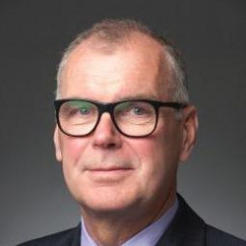Chief executives' body Acevo has launched a commission to advise charities and social enterprises on ethical and responsible investment.
The Acevo Responsible Investment Commission, which launched yesterday, will gather evidence on the number of charities with some form of ethical investment policy, and will produce practical advice and guidance for charities on setting an effective policy.
Ethical and responsible investment involves setting a charity’s investment objectives based not just on financial performance, but on the nature of the companies invested in.
At its simplest level, it involves avoiding companies which have activities contrary to those of the charity. Animal charities may wish to exclude businesses which test their products on animals, while environmental charities might wish to avoid mining or oil companies.
Other charities may choose to invest preferentially in companies which carry out similar activities, or which have a particularly good record in human rights or labour relations, or to use their investments to lobby for change in how companies are run.
The commission was launched in response to issues raised in December last year in a Panorama programme, which highlighted that a major charity, Comic Relief, had substantial investments in arms, alcohol and tobacco.
The revelation prompted a negative reaction from the charity’s supporters, and Comic Relief has since divested itself of those stocks, instituted a review, and will shortly announce a new policy.
The commission will also investigate the relationship between ethical investment and impact investment – a specialist form of investment intended to generate a positive social return as well as a financial return, and which often involves investing money directly in charities and social enterprises.
The Commission is chaired by Martin Clarke, chair of the UK Sustainable Investment and Finance Association, and includes investment managers, advisors in ethical investment, and charity leaders. An observer member from the Charity Commission will also participate.
Clarke said that charities had a duty not just to look after their beneficiaries but also to be “responsible citizens” and to conduct themselves in a way that ensured they retained a good reputation. He said that ethical investment is a necessary part of this process.
“Ethical investment should be an area of growing importance for charities,” Clarke said. “But it’s been a mysterious and complex world for many which means some trustees have been driven further away from it than perhaps they should be.”
He said he hoped the commission would increase trustees’ knowledge of their responsibilities and the options open to them.
“We hope to get experts around the table and shine a light on good practice,” he said. “We want to gather together examples of what to do.”
The commission is sponsored by CCLA, one of the UK’s largest managers of charity funds, with support from leading social investor the Social Investment Business. It is expected to report its findings in September.
Commissioners appointed so far include:
- Michael Quicke, chief executive of CCLA
- Jonathan Jenkins, chief executive of the Social Investment Business
- Sudhir Singh, partner at MHA Macintyre Hudson
- Rob Lake, trustee of the Friends Provident Foundation
- Caron Bradshaw, chief executive of the Charity Finance Group
- Jill Halford, director of audit practice and charity specialist at PWC
- Catherine Howarth, chief executive of the Charities Responsible Investment Network
- Alice Ryder, a senior investment consultant at Stanhope Jewson









